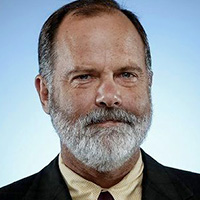THERE ARE NO EASY SOLUTIONS. The problem of Los Angeles’ thousands of unhoused people lends itself to no fast fixes. Indeed, if this issue of Blueprint makes anything clear, it is that the problem of homelessness is, in fact, many different problems. It will require care, investment, time and determination to solve them all.
But that is not any reason to give up. Slow progress — even setbacks — are to be expected. They must not deter policymakers who rightly recognize the moral urgency of this undertaking.
Alongside reason for caution, there is evidence to reinforce hope. Take, for instance, the work of UCLA’s Homeless Healthcare Collaborative, which combines research with service delivery, treating the manifold health problems that those without housing confront while also building a better database for those needs.
Similarly, a joint project combining researchers at UCLA and USC has produced PATHS, a research tool as simple as it is novel: It is amassing information about what those who are unhoused need by actually asking them. In the process, it is giving policymakers new insights into how they might assist those who are suffering most. Sweeps, for instance, don’t help much, while temporary hotel placements do — at least from the perspective of the people on the streets.
Our Special Report offers another ray of optimism. This investigation by Jon Regardie looks closely at time-limited subsidies, a program that moves those without housing into market-rate apartments. The idea sounds simple — and it is — but policymakers have long been left to wonder whether it works. As Regardie reports, it does. Not in every instance, of course, but about 25% better than other efforts, a finding that Brian Blackwell and Robert Santillano documented in a report for the California Policy Lab.
Time-limited subsidies won’t solve the problem for every person experiencing homelessness. Some of those without housing need only a boost — a deposit to secure an apartment, or a month’s rent. Others require sustained support. In the meantime, additional priorities need to be protected as well. Public transit, for example, must treat unhoused people with compassion, but also with an eye toward ensuring the safety and comfort of others who use trains and buses. Again, researchers, in this case led by Anastasia Loukaitou-Sideris of UCLA’s Luskin School of Public Affairs, are helping to identify solutions.
None of this is easy — or quick. Zev Yaroslavsky, a legendary figure in Los Angeles politics and co-author of a history of homelessness in the Los Angeles region, makes clear that policymakers face deep, ancient questions as they take on this issue. All the more reason that Yaroslavsky commends Los Angeles Mayor Karen Bass for doing so.
Bass’ resolve will be tested in the coming months and years. She has promised profound progress in addressing homelessness, a challenge her predecessors have largely avoided. She declared a state of homeless emergency on her first day in office, and everything else she has done, whether searching for a new LAPD chief or laying plans for the 2028 Summer Olympics, has been affected by this priority. Her fortunes will rise or fall based on her ability to find solutions to homelessness.
We hope the work highlighted in this issue will help to guide her efforts and those of other policymakers in Los Angeles, Sacramento and Washington. There is wisdom here, and it will take every bit of intelligence and resolve that leaders can muster if tens of thousands of people are to be brought inside and back into a life of serenity and contribution.
























